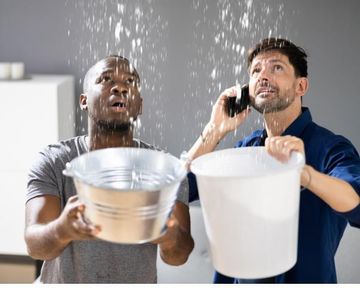7 Home maintenance tips that will save you money in the long run
Owning a home entails a lot of financial responsibility and along with that comes the ability to do home maintenance that will not only help maintain the value of your home but also save you money in the long run.
As they say - prevention is better than a cure, and when it comes to home maintenance it is especially true in times we all want to save money for the future.
The added benefit of regular home maintenance is that you can see where a problem might arise and prepare accordingly by saving for repair work and avoiding huge issues that could set you back some serious rands.
Here are the seven tips homeowners need to know
Understand your stand
Your garden and the areas surrounding areas can have a major impact on the maintenance your home needs.
If, for example, your home is surrounded by large trees you will need to inspect your roof and gutters often to ensure that they are clean and are not damaged. You will also have to understand the roots of the trees and how they can affect your plumbing.
Understand the weather in your area and do what you must to ensure your property is ready for whatever conditions are most prevalent in the area.
Do off-season maintenance
The best time to do winter maintenance is in the summer and vice versa. You don't want to find out your fireplace has a problem on the first cold night of the winter or that your air-conditioning is faulty on a sweltering summer's day.
Test everything about a month in advance and avoid emergency call-out fees. Many places also run specials in the off-season.
Clean everything regularly
Whether it’s a question of sweeping off the driveway or wiping down the air conditioner, keeping things clean reduces wear and tear. Dust can shorten the lifespan of anything with a vent or a filter. Giving appliances and the different parts of your house a regular cleaning can also help catch small issues before they become big problems. There simply isn’t a chance that you’ll notice a crack in a wall if you don’t go anywhere near that wall, after all.
Only use reputable professionals
While some minor repairs can be done by yourself, there are some projects left to the experts. In these cases, it is best to use someone that knows what they are doing and comes with a traceable track record of good service.
Build a long-term relationship with your electrician, plumber, and other professionals if you can — they’ll be able to point you to the right people for bigger projects and they may even be willing to walk you through routine tasks so you’ll be able to handle them on your own.
Create a maintenance schedule
Telling yourself you’ll get around to cleaning the gutters is the easiest way to make sure that you’ll never actually clean those gutters. Setting a schedule is the easiest way to keep up with each part of your home and, as long as you know what needs to be done, a schedule can help you keep your workload down.
It’s also worth creating a long-term plan for items like replacing appliances or renovating.
Read the manual
We know, we all feel like we can just about wing everything, however, those pesky manuals contain some valuable information.
Manuals contain valuable information about recommended maintenance. In some cases, they may even have instructions for fixing common problems, saving you the expense of having someone come out and take a look at something you can manage on your own. If you don’t have your copies of the manuals, you can often find them online with a simple search.
Keep those important manuals somewhere safe along with your legacy file
Create a home maintenance fund
Just because maintenance doesn’t cost as much as repairs might, planning for the expenses is simply good financial sense. By budgeting for future expenses, you can put yourself in a position to bring in a pro for some of those home maintenance projects that you either don’t like or aren’t comfortable with — like anything that requires a ladder or electrical work. And while you can avoid many repairs, there can be accidents, and having savings in place can keep repairs from becoming a major problem.

